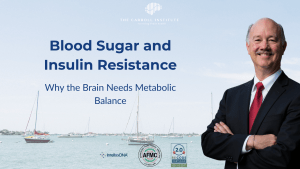The Shocking Truth About Microplastics and Your Cognitive Health.
Did you know that tiny pieces of plastic, called microplastics, are not just polluting our oceans but also making their way into your brain? It sounds like science fiction, but this alarming reality is affecting mental clarity, memory, and long-term cognitive health.
This isn’t just an environmental issue—it’s happening inside your body right now. Let’s explore how plastics are invading our brains and, more importantly, how you can protect yourself.
The Ubiquity of Microplastics
Plastic is everywhere in modern life, from water bottles and food packaging to the air we breathe. Over time, these plastics break down into microscopic fragments called microplastics, which we ingest and inhale daily.
But here’s the real shocker: these microplastics don’t just stay in your gut or bloodstream. They can cross the blood-brain barrier, the brain’s protective shield, and settle in the brain itself.
The Brain Under Siege
Once inside, microplastics don’t just sit harmlessly. They wreak havoc on brain health in several ways:
1. Crossing the Blood-Brain Barrier
The blood-brain barrier acts as your brain’s security system, keeping harmful substances out. However, microplastics, along with toxic chemicals like BPA and phthalates, are so small they can bypass this defense.
2. Triggering Neuroinflammation
Microplastics cause an immune response in the brain, leading to inflammation that damages neurons and impairs communication between brain cells. Over time, this neuroinflammation can accelerate cognitive decline and even contribute to Alzheimer’s disease.
3. Disrupting Hormones
Microplastics are endocrine disruptors, interfering with hormones like estrogen and testosterone. These hormones play vital roles in brain function, and their disruption can lead to memory problems, mood swings, and long-term cognitive decline.
4. Accumulating Over Time
Unlike other toxins, microplastics don’t easily break down or leave the body. They accumulate, posing a long-term threat to mental clarity, focus, and memory.
Warning Signs of Plastic Exposure
You might be wondering if microplastics are affecting your brain. Watch for these symptoms:
-
- Persistent brain fog or mental fatigue
-
- Difficulty concentrating or staying focused
-
- Frequent headaches or migraines
-
- Mood swings or unexplained anxiety
-
- Memory lapses or slower recall
While these symptoms can have multiple causes, microplastics might be a hidden factor you haven’t considered.
Protect Your Brain: Steps to Take Today
The good news is you can reduce your exposure to plastics and protect your brain. Here’s how:
-
- Choose Glass or Stainless Steel Over Plastic
Avoid storing food or drinks in plastic containers, especially when heating. Opt for glass or stainless steel to prevent harmful chemicals from leaching into your food and beverages.
- Choose Glass or Stainless Steel Over Plastic
-
- Filter Your Water
Tap water can contain microplastics. Invest in a high-quality water filter to remove these particles before they enter your body.
- Filter Your Water
-
- Reduce Processed and Packaged Foods
Many packaged foods are exposed to plastic during production. Prioritize fresh, whole foods whenever possible.
- Reduce Processed and Packaged Foods
-
- Minimize Plastic in Personal Care Products
Look for products labeled “phthalate-free” or “BPA-free.” These chemicals are commonly found in cosmetics, lotions, and shampoos.
- Minimize Plastic in Personal Care Products
-
- Avoid Single-Use Plastics
Say no to plastic straws, cutlery, and bags. Small, consistent changes can significantly reduce your overall exposure.
- Avoid Single-Use Plastics
Advanced Testing and Detox Strategies
If you suspect plastics are impacting your health, advanced testing can identify harmful chemicals like BPA and phthalates in your body. From there, targeted detox strategies—such as increasing antioxidant-rich foods and supporting liver function—can help eliminate these toxins.
Imagine a Plastic-Free Brain
Picture a future where your brain feels sharp, focused, and energized, free from the fog and fatigue caused by microplastics. While we can’t eliminate plastics from the world overnight, we can take proactive steps to protect ourselves.
By reducing plastic exposure and supporting your body’s natural detox processes, you can safeguard your cognitive health for years to come.
Your Next Steps
Ready to take control of your brain health?
-
- Download the Longevity Toolkit: A free guide packed with tips to reduce toxins, boost cognitive function, and support your overall health. Click here to download.
-
- Watch the Full Video: Learn more about how plastics impact your brain and actionable ways to protect yourself. Watch now on YouTube.
- Get good sleep. https://thecarrollinstitute.com/blogs/sleep-brain-cleanse
Your brain doesn’t have to be a plastic landfill. Awareness is the first step, and action is the key to lasting change. Start protecting your brain today.

Dr. Garland Glenn, DC, PhD, IFM, AFMC
Founder & Clinical Director, The Carroll Institute — Sarasota, FL
Dr. Garland Glenn is a board-certified chiropractic physician and functional medicine practitioner specializing in cognitive health, neurodegeneration, and root-cause medicine. Certified as an AFMC (Advanced Functional Medicine Clinician) and Institute for Functional Medicine (IFM) trained, he has also completed over 500 hours of advanced training in Functional Neurology under Dr. Ted Carrick, founder of the Carrick Institute.
At The Carroll Institute, Dr. Glenn leads Sarasota’s only ReCODE-certified Functional Neurology program, helping patients reverse or prevent cognitive decline through the Bredesen ReCODE Protocol, neuroplasticity exercises, and personalized functional medicine care.
Learn more about his background and approach at About Dr. Garland Glenn.
– schedule now –
free discovery call
To help you get started, we offer a free 20-minute Discovery Phone Consultation. During this call, you will be able to talk with one of our Certified Brain Health Coaches about what going on with you or your loved one and find out if we can help. Please review our FAQs prior to scheduling your free call. We look forward to talking with you soon and helping you Save Your Brain.
(yes, it’s totally free!)



